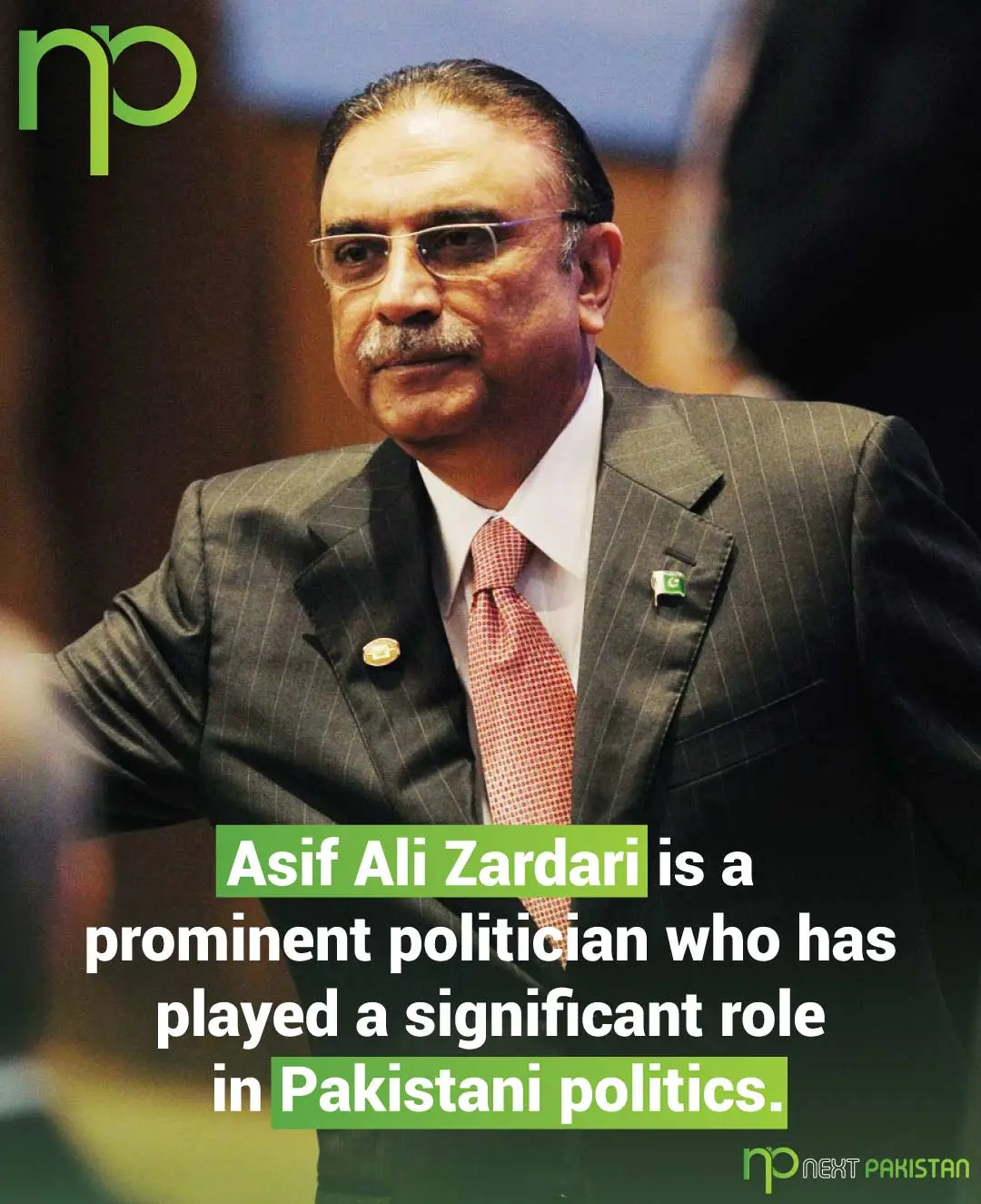
- November 29, 2023
- ubaidah khan
- 0
Asif Ali Zardari is a prominent politician who has played a significant role in Pakistani politics. He has served Pakistan as the 11th President from 2008 till 2013. He is currently the Pakistan People’s Party co-chairman, founded by his father-in-law, Zulfiqar Ali Bhutto.
Biography
Asif Ali Zardari was born to a landowner Sindhi family on July 26, 1955, in Nawabshah, Sindh. His father, Hakim Ali Zardari, was a landlord and a political figure in Sindh. His family was primarily involved in agriculture and landowning. His political career is a mix of victories and harsh consequences.
Family Background
His family belonged to a Baloch ethnic group. He had no siblings. Zardari married Benazir Bhutto, daughter of Zulfiqar Ali Bhutto, in 1987. They had three children, one son and two daughters, Bakhtawar Bhutto Zardari and Asifa Bhutto Zardari. Their son Bilawal Bhutto Zardari is now the leader of PPP and is fully involved in politics. He has served in many official positions in Pakistan.
His marriage to a great political woman was important in his political journey. Benazir Bhutto was a visionary woman and Pakistan’s first female Prime Minister. Zardari became the co-chairperson of PPP after his wife, Benazir, died in 2007.
Education
He started his schooling at Karachi Grammar School. Then, he attended St. Patrick’s College, Karachi, for higher studies. Later, he involved himself in politics.
Political Journey
He entered politics in the 1970s. Initially, his political career could have been more successful. He lost the election in 1983, even in his ancestral district. His career gained momentum after his marriage in 1987. He became a member of PPP. In 1998, when Benazir became the prime minister of Pakistan, he faced criticism for the collapse of Bhutto’s administration. Benazir’s government collapsed in 1990. The next Prime Minister, Jatoi, put allegations against him of charging a ten per cent commission whenever he got permission to set up any project. He was arrested in October 1990 and accused of some odd allegations, including kidnapping. He tried his bail, but all in vain. Later, in February 1993, the court ordered him to be released.
Asif Ali Zardari became the cabinet minister in 1993. In 1995, he became the chairman of the new Environment Protection Council. When Murtaza, his brother-in-law, died, the people suspected Zardari of his murder. He was arrested in Lahore again in 1996. After several years in prison, the court ordered Zardari’s release in 2004. The allegations cast a lasting shadow on his career. After their release, he went into exile in Dubai.
After a long self-imposed exile, he returned to Pakistan when Benazir Bhutto died in 2007. Her assassination led to the turning point of his journey. Her death led him to be the co-chairperson of the Pakistan People’s Party. In the elections in 2008, the PPP won the game, and Zardari became the eleventh President of Pakistan in September 2008, and his presidency ended in 2013. Zardari has been quite active in politics till now. His political history is a mixture of support as well as criticism.
Initiatives and Projects
He introduced many projects and initiatives during his five years of presidency. He initiated the Benazir Income Support Program (BISP), which he named in honour of his (late) wife. It aimed to support the poor and vulnerable segments of society and tried to alleviate poverty. Zardari initiated policies to improve agricultural productivity. He set land reforms to help farmers. It included subsidies, credits and incentives to the agriculture sector. The National Reconciliation Ordinance (NRO) continued during his presidency (Musharaf initiated the NRO during his tenure). Zardari introduced the 7th National Finance Commission (NFC) Award. It provided a fair share of resources to the provinces. He introduced the 18th Amendment to the Constitution. His foreign policy and relations are of great importance.
He promoted educational reforms by establishing new universities and educational institutions. He focused on improving infrastructure. He invested in various public works energy projects and tried stabilising the economy.
Allegations
Asif Ali Zardari faced many challenges and controversies. NAB charged him with corruption and financial instabilities. He spent several years in prison in case of money laundering. The NRO granted amnesty to politicians, including Zardari, for bribery, embezzlement and other charges. He was involved in the MemoGate scandal in 2011. Although he denied the assertions, it negatively impacted civilian government relations with the military. NAB also charged him with illegal involvement in various cases.
Zardari has consistently denied every allegation, but these allegations have impacted his political journey.
Conclusion
Asif Ali Zardari was a great political leader. Both achievements and controversies marked his era. During his tenure, he has tried to reshape Pakistan. His presidency impacted Pakistan’s economic development, but the allegations and criticism have affected his power and fame.